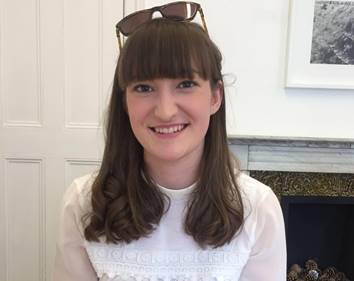My role as an orthoptist and how we’ve been expanding our work in the community

Thursday 14 October marks Allied Health Professions (AHPs) Day and is an opportunity for us to shine a light on our AHP colleagues at Whipps Cross Hospital who provide vital services to ourpatients. This week we'll be shining a light on Orthoptists colleagues at Whipps Cross Hospital so keep an eye out on a series a blogs that we'll be posting throughout the week.
To start the week, Alia Harrison, Community Lead Orthoptist, tells us more about her profession as an orthoptist and the work she is been doing to support the local community. She also tells us what her typical day looks like.
"Orthoptists are specialists in diagnosing and treating issues caused by problems with how the eyes work together and how the vision is processed by the brain. Problems with how the eyes work together (binocular vision) can cause reduced quality of vision, double vision and misalignment of the eyes, while issues with visual processing can cause difficulty with peripheral vision.
Orthoptists treat both children and adults, and work with people who have neurological conditions such as stroke, brain injury and Multiple Sclerosis.
Whilst some patients may be under the care of the orthoptist alone, orthoptists work as part of the Ophthalmology team with Ophthalmologists, Optometrists, Nurses and Ophthalmic Technicians in the Eye Treatment centre, and as part of wider MDTs with Neurologists, and stroke teams to help investigate and manage visual symptoms.
Recent changes to the role of the orthoptist at Whipps Cross Hospital include the development of extended role skills in chalazion/ watery eyes and in AMD and injection clinics. These skills mean that orthoptists are able to see patients with these conditions, whereas previously they would have been seen in our consultant clinic. Using orthoptists means that we are able to improve waiting times for all our patients.
Orthoptists have also taken on virtual appointments for patients with Neuro-Ophthalmological conditions, working collaboratively with other professionals in diagnosing and managing these conditions, and will be part of the Neuro-Ophthalmology MDT which is currently being established.
At Whipps Cross Hospital, the orthoptists provide hospital based orthoptic and extended role services, as well as community orthoptic services to children living in Redbridge and Waltham Forest at six community sites and six special schools. The community service has been established for over 20 years and has strong links with Health Visitor and school nurse referrals, as well as GP referrals through E-Referral. Each month over 200 children are booked for orthoptic appointments in Community.
In the new Whipps Cross Hospital, orthoptists will continue to have a hospital base to assess emergency patients presenting through eye casualty and the stroke service, and for a co-ordinated MDT approach for complex cases. Our well established community service will continue, and we are looking for opportunities to be part of new community hubs to expand our provision for stable conditions in the community.
Looking to the future, Orthoptists at Whipps Cross are currently training to be able to perform an extended role in screening the eyes of children with Juvenile Idiopathic Arthritis for inflammation of the eye, which is sight threatening if not treated promptly. This will make more efficient use of our consultant clinics, and improve timely patient access to care.
Our aim is to use our skills to provide outstanding care for our local population, offering extended role clinics in community as well as the hospital setting, and to be part of the modernisation of Ophthalmology services to maintain a sustainable service.
Whilst working at Whipps Cross my greatest achievement has been returning our community service to seeing pre-COVID numbers of patients. Working closely with our Orthoptic, Optometry and community administration teams has enabled us to run additional clinics, and I am proud of the patient centred care our team have been able to deliver over the past 18 months."
Alia Harrison - Community Lead Orthoptitst
What does my typical day look like?
07:50: Arrive at the Loxford Polyclinic for my all day community clinic. Today will be a joint clinic for children with one of our hospital Optometrists.

08:45: My first patients of the morning arrive - 18 month old twins whose parents are concerned with their eye alignment.
11:15: A child wasn’t brought for their appointment so I spend time checking Cerner, ELPR and Rio for any safeguarding concerns.
11:45: I test the vision of a child with autism who is pre-verbal. Did you know you don’t need to be able to name letters for an eye test? People with special educational needs are 28 times more likely to have an eye problem, but can find it difficult to access eye care with high street Optometrists. We use tests that look at a persons’ eye movements to quantify their level of vision.

14:45: I refer a child I’ve assessed today to our consultant Ophthalmologist at Whipps Cross to consider an operation to straighten their eye position. Our community service has close links to Whipps Cross to deliver the best care for our patients.
16:10: Collate the days attendance statistics which we keep for the commissioners. 85% of children were brought for their appointments today, which we would consider good.
